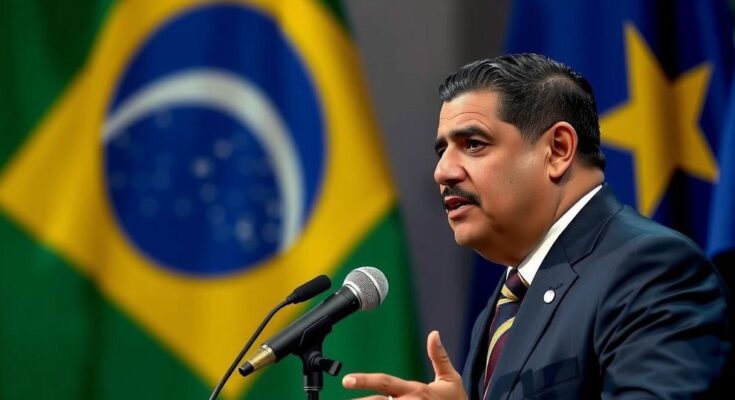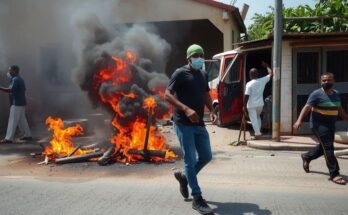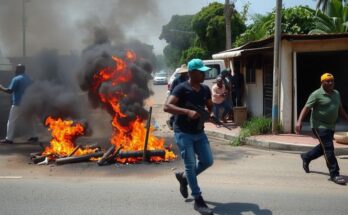President Nicolás Maduro has claimed that Brazil’s last-minute veto prevented Venezuela from joining BRICS, despite prior assurances from Brazilian officials. The veto has heightened tensions between Caracas and Brasília amid existing political strains over Venezuela’s recent electoral outcomes. Maduro sees BRICS membership as crucial for alleviating the impacts of U.S. sanctions on Venezuela’s economy and emphasized the need for new financing structures to reduce dependence on Western financial systems.
In a recent address, Venezuelan President Nicolás Maduro attributed the exclusion of Venezuela from the BRICS bloc to the actions of a Brazilian diplomat, Eduardo Paes Saboia, who unexpectedly vetoed their entry despite prior assurances from Brazil’s Foreign Minister Mauro Viera. Maduro asserted that he received personal guarantees from Viera that Brazil would not obstruct Venezuela’s accession to BRICS, which comprises nations aspiring to foster a multipolar world. The BRICS Summit in Kazan, Russia, where new members were welcomed, omitted Venezuela—much to the surprise of Venezuelan officials—prompting accusations of betrayal against the Brazilian government. Maduro characterized Saboia’s actions as a “stab in the back” and criticized the Brazilian foreign service, Itamaraty, for its historical ties to U.S. interests. The strained relations between Caracas and Brasília have been exacerbated due to Brazil’s discontent over the recent presidential election results in Venezuela, where Maduro claims victory amidst allegations of electoral fraud. Furthermore, Brazilian President Luiz Inácio Lula da Silva, who earlier attempted to mediate the political tensions, has not publicly addressed Venezuela’s BRICS entry rebuff. Venezuela’s aspirations to join BRICS were seen as crucial, particularly given the damaging impact of U.S. sanctions and the blockade limiting the country’s economic engagement in global markets. In light of these challenges, Maduro emphasized the necessity for BRICS to innovate a new global financing system that minimizes reliance on U.S. hegemony, reflecting on the critical role of the New Development Bank, led by Dilma Rousseff.
The BRICS group, consisting of emerging economies—Brazil, Russia, India, China, and South Africa—aims to create alternative frameworks for global governance, often opposing Western dominance. Venezuela has long sought entry into this group, viewing membership as essential for mitigating the impacts of extensive U.S. sanctions that have severely constrained its economy. The sanctions, imposed on the Venezuelan oil industry and its state-owned entity PDVSA, have forced the country to engage in complicated and often hazardous trade agreements. Thus, being part of BRICS could potentially provide Venezuela with critical economic partnerships and new financial opportunities, making its exclusion notable and politically significant.
In conclusion, the Venezuelan government’s exclusion from the BRICS bloc, attributed by President Maduro to a last-minute veto from a Brazilian diplomat, highlights the fragility of diplomatic engagements influenced by internal and external political dynamics. The ongoing challenges posed by U.S. sanctions remain central to Venezuela’s economic struggles, and Maduro’s call for BRICS to assist in establishing independent financial systems underscores the urgent need for alternative development pathways for countries facing geopolitical isolation. The situation continues to evolve as diplomatic discussions between Venezuela and Brazil unfold.
Original Source: venezuelanalysis.com




